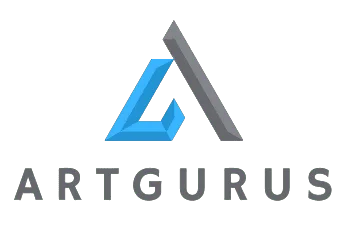Introduction
In the digital age, gadgets have become an integral part of our lives, transforming the way we learn, work, and play. While concerns about screen time and its potential negative impact on children’s development persist, there’s an undeniable potential for gadgets to enhance children’s learning experiences. With the right tools and resources, children can develop new skills, broaden their knowledge, and engage in interactive and immersive educational experiences. In this blog, we will explore the myriad ways in which gadgets can positively impact children’s education. We’ll delve into the world of educational apps and online resources that empower kids to learn, grow, and thrive in the digital era.
The Evolution of Learning
Traditional learning methods, such as textbooks and classroom lectures, have been instrumental in shaping generations of learners. However, in today’s rapidly evolving world, these methods may not always provide the depth and engagement required to prepare children for the future. Gadgets, including smartphones, tablets, and computers, offer a dynamic platform for delivering education that caters to the needs and interests of today’s tech-savvy generation.
Educational Apps: A World of Possibilities
- Personalized Learning: Educational apps, like Khan Academy and Duolingo, allow children to learn at their own pace. These apps adapt to the individual’s level and provide instant feedback, making the learning process more effective and engaging.
- Engaging Content: Apps often include gamified elements that make learning fun and interactive. Games like Minecraft: Education Edition or BrainPOP offer a unique blend of entertainment and education, fostering a love for learning.
- Accessibility: Educational apps are accessible 24/7, which means that children can learn anytime and anywhere. This accessibility is especially valuable for students who need additional practice or those facing physical or geographical barriers to education.
- Vast Subject Coverage: Apps cover a wide range of subjects, from mathematics and science to art and music. This diverse selection allows children to explore their interests and discover new passions.
- Real-world Skills: Many educational apps teach practical, real-world skills. For instance, Tinkercad introduces kids to 3D design, while coding apps like Scratch and Tynker foster programming and problem-solving abilities.
Online Resources: A Treasure Trove of Knowledge
- Educational Websites: Websites like National Geographic Kids, NASA Kids’ Club, and Smithsonian Kids provide a wealth of information about science, history, and the world, making learning an exciting adventure.
- YouTube and Educational Channels: YouTube isn’t just for cat videos. There are numerous educational channels, such as TED-Ed, CrashCourse, and Numberphile, that offer engaging video lessons on a variety of subjects.
- Virtual Field Trips: Online platforms like Google Earth and Google Arts & Culture enable kids to take virtual field trips to historical sites, museums, and natural wonders, broadening their horizons.
- eBooks and Audiobooks: Digital libraries like Project Gutenberg and Audible for Kids offer countless books, both text and audio, opening up a world of literature to children. These resources improve reading skills and promote literacy.
- Coding and STEM: Websites like Code.org and the Raspberry Pi Foundation provide kids with opportunities to learn about coding, robotics, and other STEM (Science, Technology, Engineering, and Mathematics) fields.
Challenges and Solutions
Despite the numerous benefits, gadgets also come with challenges when it comes to children’s learning. These challenges include concerns about screen time, digital distractions, and the quality of online content. To address these issues, parents and educators need to adopt a balanced and proactive approach:
- Screen Time Management: Setting time limits and enforcing screen-free periods can help strike a balance between gadget use and other activities.
- Parental Controls: Utilize parental control features to ensure that children access age-appropriate content and stay safe online.
- Quality Control: Be discerning about the apps and websites your child uses. Opt for those with a solid educational foundation and positive reviews.
- Engagement and Involvement: Encourage discussions about what children are learning from their gadgets and participate in their educational journey. This helps foster a healthy learning environment.
- Hands-on Learning: Complement digital learning with hands-on experiences, such as science experiments or art projects, to provide a well-rounded education.
Conclusion
In a world where gadgets and technology play an increasingly significant role, leveraging these tools to enhance children’s learning experiences is not just beneficial but essential. Educational apps and online resources open doors to a vast array of knowledge and skills, making learning exciting and interactive. However, it’s crucial to strike a balance, manage screen time, and ensure that the content accessed is of high quality and age-appropriate.
As we navigate the ever-evolving landscape of education, gadgets and digital resources will continue to reshape the way children learn and grow. By embracing this digital transformation, we can prepare the next generation for a future where adaptability, digital literacy, and a hunger for knowledge are paramount. It’s a brave new world of learning, and gadgets are at the forefront of this educational revolution, making it an exciting time to be a young learner.







104 responses
facebook ad accounts for sale account store profitable account sales
facebook ads account for sale profitable account sales account marketplace
buy facebook business manager buy facebook business manager verified
unlimited bm facebook https://buy-business-manager-verified.org